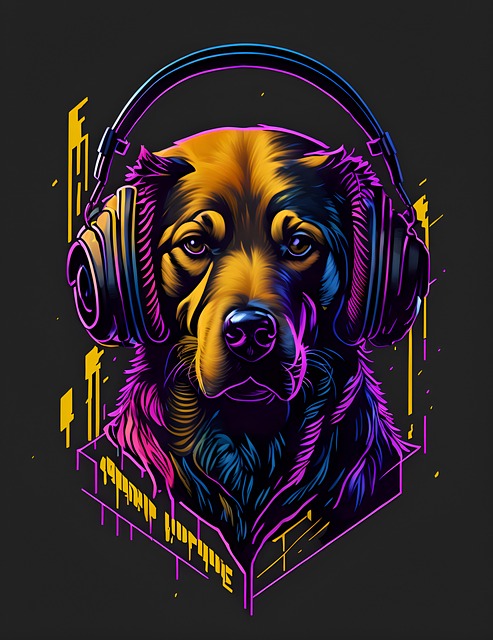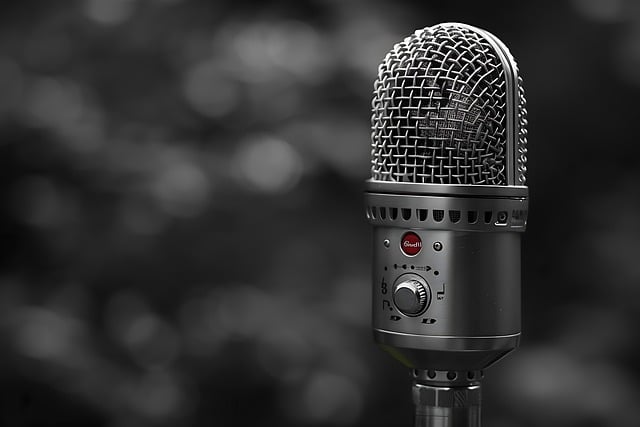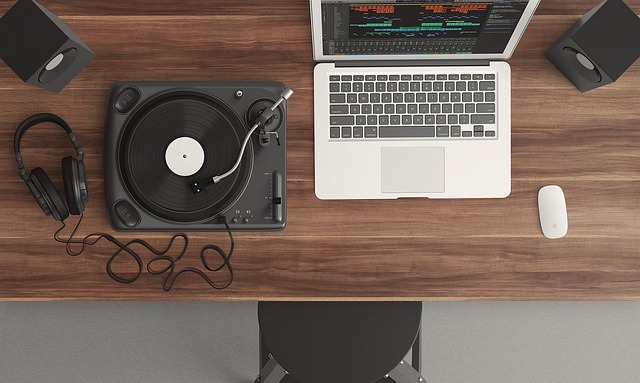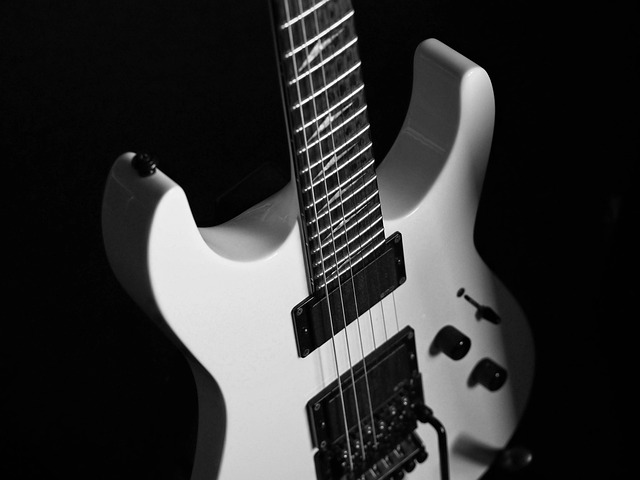AI music tools are revolutionizing music production globally, offering unprecedented creative possibilities for musicians and producers. These tools analyze vast datasets to generate melodies, harmonies, compositions, and mixing/mastering suggestions, streamlining workflows and enabling experimentation with diverse styles. AI democratizes access to advanced production techniques, fostering inclusivity among artists of all skill levels. The future of music production lies in the harmonious fusion of human creativity and artificial intelligence while navigating ethical considerations around authorship, originality, and copyright.
“Dive into the exciting world of AI music tools, where technology meets creativity in unprecedented ways. This blog is a treasure trove of knowledge for musicians and producers, offering a comprehensive guide to harnessing the power of artificial intelligence in musical composition and collaboration. From unlocking new creative possibilities to revolutionizing industry standards, AI music tools are transforming the landscape. Explore our insightful sections on the rise of AI, tool overview, enhanced composition, collaborative potential, and ethical considerations, all tailored to empower your musical journey.”
- The Rise of AI in Music Production: Unlocking Creative Possibilities
- Understanding AI Music Tools: A Comprehensive Overview
- Enhancing Musical Composition with Artificial Intelligence
- AI-Powered Music Collaboration: Revolutionizing the Industry
- Ethical Considerations and Future Prospects of AI in Music
The Rise of AI in Music Production: Unlocking Creative Possibilities

The integration of AI technology into music production has sparked a revolution, unlocking unprecedented creative possibilities for musicians and producers worldwide. AI music tools are no longer a concept confined to science fiction; they have become powerful assistants in the digital studio. These tools offer an array of functions, from generating unique melodies and harmonies to enhancing mixing and mastering processes, all at the click of a button. With their ability to analyze vast musical datasets, AI algorithms can provide insights and suggestions, inspiring musicians to explore new sonic territories.
Musicians are embracing AI as a means to streamline their creative flow, experiment with diverse styles, and push artistic boundaries. AI music tools democratize access to advanced production techniques, allowing artists of all skill levels to achieve professional-grade results. As these technologies continue to evolve, the future of music production looks set to be defined by the harmonious fusion of human creativity and artificial intelligence.
Understanding AI Music Tools: A Comprehensive Overview

AI music tools are transforming the creative landscape for musicians and producers, offering unprecedented opportunities for innovation and efficiency. These advanced technologies leverage artificial intelligence algorithms to generate, manipulate, and enhance musical content, from composing melodies and harmonies to mastering tracks for optimal sound quality. By learning from vast datasets of existing music, AI models can produce unique and diverse outputs, enabling users to explore new sonic territories without extensive training or experience.
One of the key benefits of AI music tools is their versatility. They can assist with various tasks, such as generating chord progressions, suggesting lyrics, automatically mixing and mastering tracks, and even creating entire songs based on user input. Whether you’re a seasoned producer looking to streamline your workflow or an aspiring musician seeking creative inspiration, AI music tools offer a powerful and accessible means to bring your musical visions to life.
Enhancing Musical Composition with Artificial Intelligence

Artificial Intelligence (AI) music tools have emerged as a game-changer in the world of musical composition, offering musicians and producers an unprecedented level of creativity and efficiency. These cutting-edge technologies are revolutionizing how music is created, from generating melodic ideas to enhancing harmonic structures. AI algorithms can analyze vast amounts of musical data, learn patterns, and produce unique and diverse compositions that might otherwise take human composers hours or even days to create.
One of the key advantages of AI music tools is their ability to provide personalized suggestions tailored to individual styles and preferences. They can assist in overcoming creative blocks by offering fresh perspectives and ideas, making the composition process more accessible and enjoyable. Additionally, AI can enhance productivity by automating repetitive tasks, allowing musicians to focus on refining their creations and experimenting with new sounds.
AI-Powered Music Collaboration: Revolutionizing the Industry

AI-powered music collaboration is transforming the industry, offering musicians and producers innovative ways to create and enhance their work. These AI music tools leverage advanced algorithms to generate melodies, harmonies, and even entire compositions, providing a creative assistant for artists of all levels. By analyzing vast datasets of existing music, these tools can learn and mimic various styles, allowing for unique and personalized collaborations.
From generating initial musical sketches to refining arrangements, AI music tools streamline the production process, saving time and inspiring new artistic directions. They democratize music creation by making professional-grade sound design accessible to everyone, fostering a more inclusive and experimental environment where creativity knows no bounds.
Ethical Considerations and Future Prospects of AI in Music

As AI music tools continue to evolve, it’s crucial to navigate their integration into the musical landscape with ethical considerations in mind. These tools, while offering immense potential for innovation and efficiency, raise questions around authorship, originality, and the impact on human creativity. Musicians and producers must grapple with issues like proper attribution when using AI-generated content, ensuring transparency about AI involvement in their work, and respecting copyright laws.
Looking ahead, the future of AI in music holds both promise and challenges. As algorithms become more sophisticated, we can expect even more diverse applications—from creative composition to personalized sound design. However, striking a balance between technological advancement and artistic integrity will be vital. The industry must foster discussions on ethical guidelines, data privacy, and the role of human intuition in AI-human collaboration, ensuring that these tools enhance musical expression without supplanting it.
The integration of AI music tools into the creative process is not only transforming the music industry but also expanding the boundaries of what’s possible for musicians. From enhancing composition to revolutionizing collaboration, these tools offer a wealth of knowledge and new directions. As we navigate the ethical landscape and consider future prospects, one thing is clear: AI music tools are here to stay, promising a vibrant and innovative future for music production. Embracing their potential can unlock new creative horizons for musicians worldwide.
